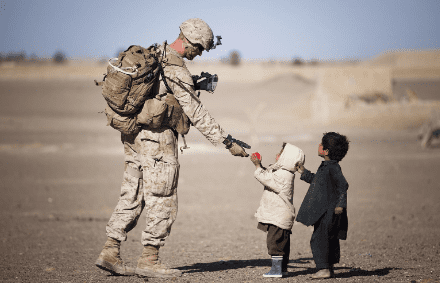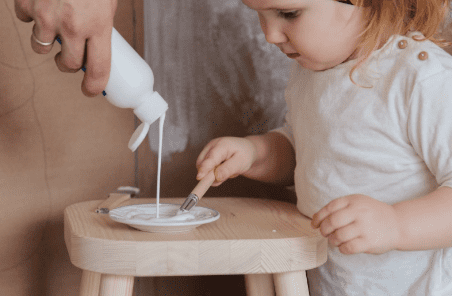Affirmations For Kids
Statements can help children believe in themselves, feel more confident, and become motivated to achieve their goals.

Selfpause Affirmation App
Download the app to get 1,000’s of affirmation meditations and everything you need to write, record and listen to your own.
Our children are always growing and learning, and it’s important to encourage their development as much as possible. One way to do this is by using affirmations. Affirmations are positive statements that can help to change our thinking and behavior. They can be particularly helpful for children, who are often more open to new ideas and ways of thinking than adults. There are many different types of affirmations, but the most powerful ones for kids are positive affirmations. These statements can help children to believe in themselves, feel more confident, and become motivated to achieve their goals.
Affirmations have been shown to be effective in changing our thinking and behavior. In one study, participants who were exposed to positive affirmations felt more positive about themselves and their abilities than those who were not exposed to any affirmations. Affirmations can also help children to overcome negative thinking patterns. In another study, children who were given positive affirmations to read and recite showed increased levels of self-esteem and reduced levels of anxiety and depression.
The most powerful affirmations for kids are those that are positive and specific. For example, rather than simply telling your child that they are smart, you could say “I am confident in my ability to succeed”. This statement is more likely to have a positive impact on your child’s thinking and behavior.
How Affirmations can help our children?

Affirmations can help our children by teaching them to think positively about themselves and their abilities. By repetition, affirmations ingrain these positive thoughts into their subconscious mind, eventually becoming part of their belief system. As a result, children who regularly use affirmations gain greater self-confidence and self-esteem, which leads to improved school performance, stronger social relationships, and increased overall happiness.
While any positive statement can technically be considered an affirmation, there are certain characteristics that make some affirmations more effective than others. For example, the most powerful affirmations for kids are those that are specific, personal, and present tense.
For example, rather than simply saying “I am smart,” it is more effective to say “I am getting better and better at math every day.” This affirmation is specific, personal, and in the present tense, which makes it more likely to stick in the child’s mind.
It is also important to make sure that the affirmations are realistic. For example, an affirmation like “I am the best basketball player in the world” is unlikely to be believed by most children (or adults, for that matter!). On the other hand, an affirmation like “I am a good basketball player” is much more believable and therefore more likely to be effective.
Finally, it is important to encourage kids to use affirmations regularly. The more they repeat the affirmations, the more likely they are to believe them. A good way to encourage regular use is to create a special place for the affirmations, such as a poster or bulletin board. Each day, have the child read the affirmations out loud and help them to come up with new ones as needed.
With a little time and effort, affirmations can have a profound impact on our children’s lives. By helping them to think positively about themselves and their abilities, we can set them up for success in all areas of life.
Facts about affirmations

- Affirmations can be used by people of all ages, but they are particularly beneficial for children.
- Repeating affirmations can help children to overcome challenges and obstacles in their lives.
- Affirmations can help to improve self-confidence and self-esteem in children.
- Some of the most powerful affirmations for children are those that focus on positive thinking and self-belief.
While it might seem like a simple task, finding the right affirmations for kids can be tricky. You want to choose something that is both age-appropriate and inspiring. But with a little thought and creativity, you can come up with affirmations that will help your child build self-esteem, confidence, and resilience.
Here are some tips to get you started:

1. Keep it positive
When crafting affirmations for kids, always choose something positive. For example, instead of saying “I won’t hit my sister,” try “I am a kind and gentle person.” This small change in wording can make a big difference in how your child hears and internalizes the message.
2. Make it specific
The more specific your affirmation, the more powerful it will be. So instead of simply saying “I am smart,” try something like “I am confident in my abilities and I can achieve anything I set my mind to.”
3. Keep it age-appropriate
Choose affirmations that are developmentally appropriate for your child’s age and stage. For younger kids, you might want to keep the affirmations short and simple. Older kids can handle more complex messages.
4. Repeat, repeat, repeat
The more often your child hears an affirmation, the more likely it is to stick. So don’t be afraid to repeat it often! You can write it down and post it where your child will see it every day, or come up with a special mantra or chant that you say together.
5. Encourage involvement
Get your child involved in the process by asking them to help come up with their own affirmations. This will help them feel more ownership over the message and make it more likely to stick. With a little thought and effort, you can come up with affirmations that will help your child build self-esteem, confidence, and resilience. So get started today and watch your child blossom!
How Positive Affirmations Effect Children’s Self-esteem And Behavior

Some experts say that children are like sponges, soaking up everything around them. If this is true, then it’s no surprise that the words and phrases we use with our kids can have a profound effect on their self-esteem and behavior.
Positive affirmations are short, positive statements that describe a desired outcome or goal. When used regularly, they can help to increase self-confidence and encourage positive thinking and behavior in children.
Many parents use positive affirmations with their kids as a way to build self-esteem and confidence. By repeating these phrases often, children begin to believe them and internalize the message. This internal belief can then lead to changes in behavior as kids strive to live up to the affirmations.
There is a lot of research to support the power of positive affirmations. Studies have shown that kids who use affirmations have higher self-esteem, are more resilient, and perform better academically than those who don’t.
If you’re looking for some positive affirmations to use with your kids, here are 30 examples:

1. I am capable of anything I set my mind to.
2. I am loved and appreciated.
3. I have the power to make my own decisions.
4. I am strong and capable.
5. I can handle whatever comes my way.
6. I am valuable and worth taking care of.
7. I deserve to be respected by others.
8. It’s okay for me to make mistakes – that’s how I learn and grow.
9. There’s nothing wrong with me – I am just perfect the way I am.
10. I’m not afraid to try new things or take risks.
11. It’s okay for me to express my emotions – they are just a part of who I am.
12. I am a unique and special individual.
13. I have the right to be healthy and happy.
14. I am responsible for my own happiness.
15. I can create anything I want in life.
16. All of my needs will be met if I just ask for help.
17. It’s okay for me to be imperfect – that’s what makes me human.
18. Failure is not an option – I will never give up on myself.
19. Other people’s opinions of me don’t define who I am or what I’m worth.
20. My mistakes do not define me – they are just a part of my journey.
21. I am capable of handling anything that comes my way.
22. I am worthy of love and respect.
23. I have the power to change the world.
24. I can be anything or anyone I want to be.
25. I have the power to create my own reality.
26. I am powerful beyond measure.
27. I will never give up on myself or my dreams.
28. All of my desires are within reach if I just take action towards them.
29. My intuition is always guiding me in the right direction.
30. Every day, in every way, I am getting better and better.”
How often should you use affirmations with kids?

It is important to use affirmations with kids on a regular basis. The more frequently they are used, the more likely it is that kids will internalize the positive messages and begin to believe them. Try to incorporate affirmations into your daily routine with your kids, such as during breakfast or bedtime. You can also have your kids repeat affirmations back to you throughout the day. Repeating affirmations out loud is a powerful way to help kids learn and remember them.
Some parents worry that their kids will become conceited if they use affirmations too frequently. However, it is important to keep in mind that affirmations are not meant to boost kids’ egos. Rather, they are meant to help kids develop a healthy sense of self-esteem and confidence. If used properly, affirmations can be a valuable tool in helping kids reach their full potential.
Our Top FAQ's
Some examples of affirmations for kids might include things like “I am loved and worthy,” “I am capable and confident,” or “I am deserving of happiness and success.”
Affirmations can benefit children by helping them to develop a positive self-image and build self-confidence. They can also help children to overcome negative thought patterns and develop a more optimistic outlook.
Children can begin using affirmations at any age, although they may require some guidance and support from parents or teachers. Children as young as four or five years old can often understand and benefit from using affirmations.
Parents and teachers can help children create their own affirmations by encouraging them to think about their strengths and positive qualities, and then assist them in turning those thoughts into positive statements. This can be a fun and empowering activity for children, and can help them to develop a sense of ownership and control over their self-image.
Some potential challenges to using affirmations with children include the fact that they may not fully understand the concept at first, and may need time and guidance to develop their ability to use affirmations effectively. Additionally, if affirmations are used in a repetitive or mechanical way, they may lose their effectiveness, so it is important to use them in a way that is genuine and meaningful to the child.
